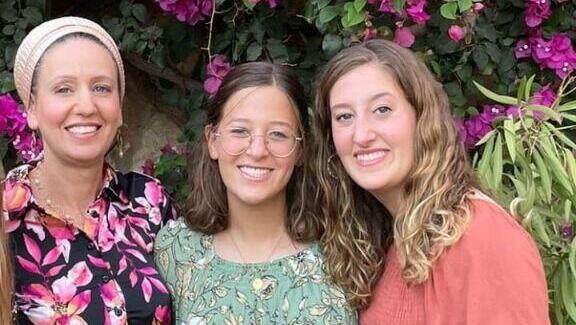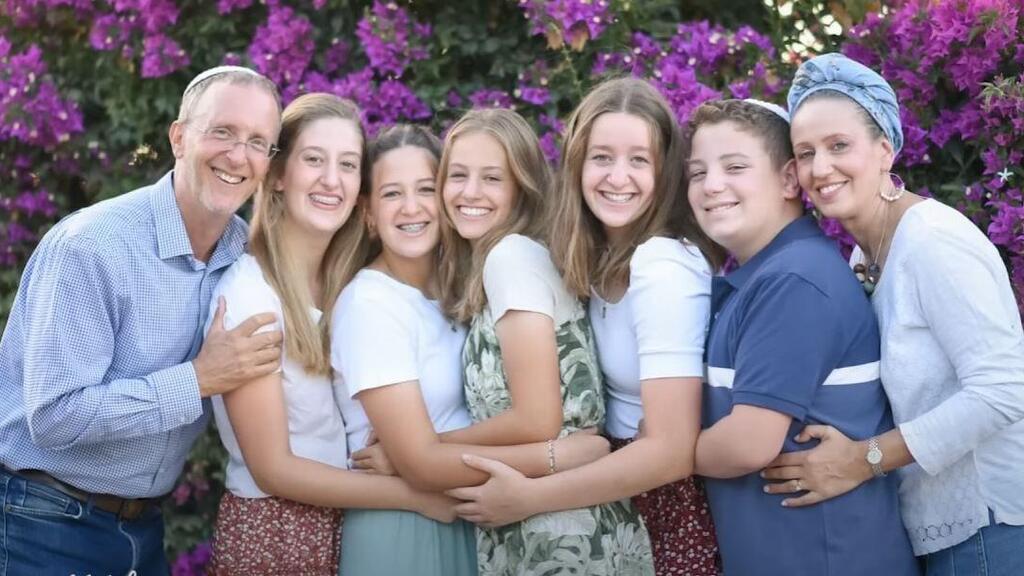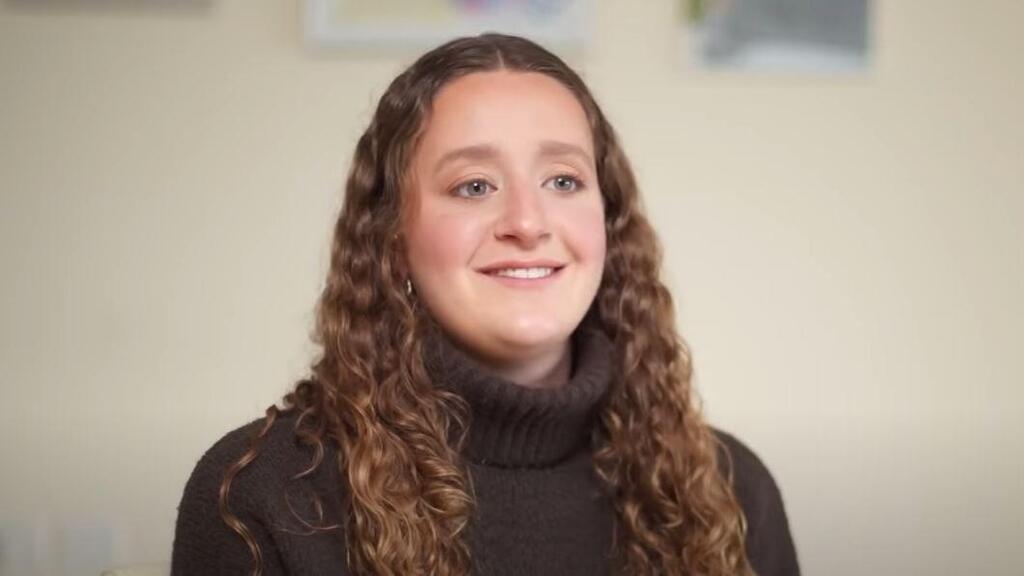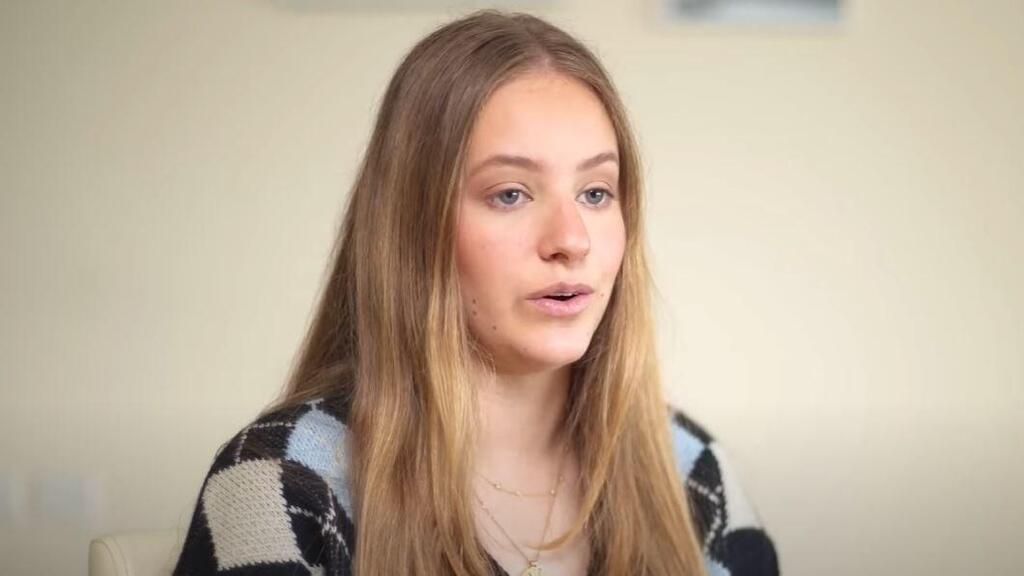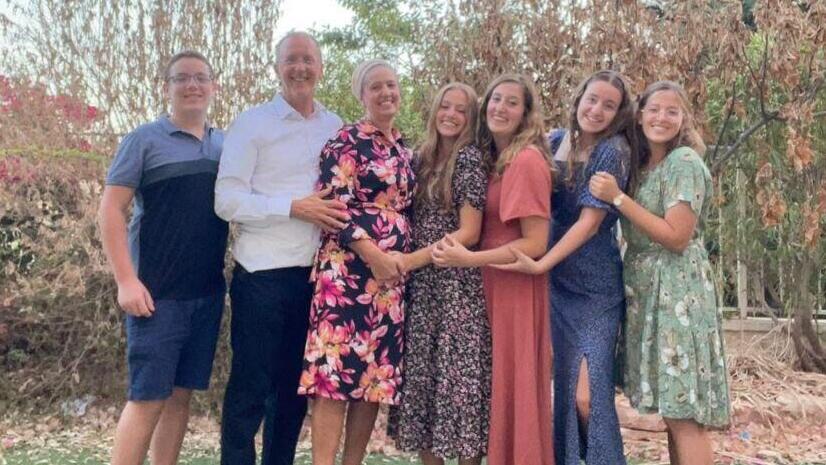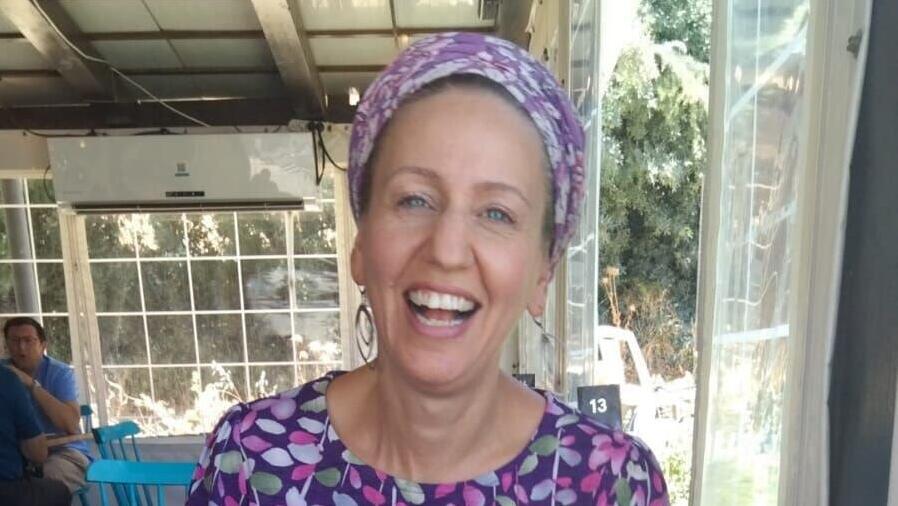Tali and Keren Dee share their story
(Video: Shifra Soloveichik)
Keren and Tali Dee, whose mother Lucy and sisters Rina and Maia were murdered in a terrorist attack on April 7, 2023, vividly recall the moment they sat in front of the TV and saw their family’s white car being shown on the news.
“Tali called me, and she said, ‘Keren, have you seen the news? There was a terrorist attack. I think it's our car,’” recounted 19-year-old Keren. “So I calmed her down on the phone. I was like, ‘Tali, listen it's all right.’ Like it's not us. The pictures were running around of the white car, and we had a white car.”
Getting anxious, they attempted to dial their sisters’ numbers, trying to reach them. “So, then we started getting nervous, and then we started calling and calling. None of them answered.”
This nightmare scenario began after their mother and two sisters had left for a family vacation they had planned to celebrate Passover.
“We were driving up north for a family vacation. I was in the car with Maia, Rina and Mummy. The second car was Daddy, Tali and Yehuda. They drove past my national service to drop me off. So, when I got out of the car, I remember really taking my time because I didn't want to be there for Shabbat.
“I spoke to Mummy, and I told her that I'm going to miss them and that I can't believe they're going without me. And then I remember Maia telling me from the back that it's only going to be one night that we're not together,” Keren recounted.
Tali added, “We're a family of seven. I'm in the middle. I have two older sisters and then a younger sister and a younger brother. Maia is the oldest and I come in second. Then Tali, Rina, and Yehuda is the youngest.”
'Everything changed'
“I remember hanging up the phone and immediately opening my phone and checking up like, ‘what's happening? What's going on?’ I walked downstairs to one of the people working in the building and I asked him if he could take me to the hospital because I heard that they're bringing in the bodies, and we don't know who it is yet, but there's a chance of it being my family.” Keren said.
“Keren went straight to the hospital. She was the first one there. Then we all arrived, and I got a call from one of Mummy’s best friends saying that they're flying Mummy over in a helicopter. I called up Daddy and I said, ‘Daddy, what's going on with Maia and Rina?’ I remember just him telling me on the phone, ‘Baruch Dayen Haemet’ [The Jewish Blessing on Death],” Tali said.
“When I saw my mom in the hospital attached to all the machines, that's when I realized, okay, this is for sure our family. On Monday, they confirmed her death. We made the decision to donate her organs,” she added.
“The weeks after coping were hard. Lots of things in the family changing. Lots of new things to get used to. If it was Shabbat meals that suddenly we’re four instead of seven, and there are three empty spaces at the table. Or if it was family trips where there would be so much noise, and music in the car and loud songs, and now it's just the four of us together. It's kind of like adapting to a new life. Everything changed. I had to start taking on a lot of different roles. I had to basically step up to becoming also an older sister and partly mother as well,” Keren described.
“My Mum and I were very, very close. I used to always love helping her cook. She was very kind. I used to come home from national service after I was really exhausted from a full day at work, and she would tell me, ‘Keren, don't make anything for Shabbat,’” she said, adding she thought of her mother at every Shabbat she now observes.
“Maia and I were really close, not only as an older sister-younger sister but also as best friends. If she needed advice on something she'd come to me, or if I was debating about something or bored in the middle of the day, I'd pick up a phone, ring her, and listen to her advice. It's hard that she's gone. Suddenly you want to pick up the phone and you don't have anyone to call. No one is going to answer on the other side,” Keren said.
“After the tragedy, Maia’s room was always kept closed. For my Dad, it was very hard to walk by the closed room which was all filled with hard and sad memories. So we decided together that I'd move into her room. I wanted to keep her living inside her room at the same time make it feel like my own,” she added.
“So I changed the room up a little to make it aesthetic, but still in a way that we both love. Like on the one hand, putting in things that I love: lots of plants and traveling and different pictures that really show my personality. But then on the other hand, keeping it the way that she'd like it, aesthetic and neat.”
“Rina was my youngest sister, and I think in the same way that I looked up to Maia she looked up to me. She was really, really clever. I felt like I could always have an honest conversation with her because she always had a different way of looking at things. We shared a room together, so that also created a really strong bond, just like sharing our space,” Tali shared.
'I started noticing things were a lot less important'
“Keren was ready to clear out the room when I wasn't even ready to touch their things. I think from the beginning, she had the ability to process the hard things. She was also ready to talk about it much earlier than I was, and to write things down. We experience it really differently. That's something that has affected our relationship.”
“After the tragedy, I started noticing that a lot of big things in my life that I felt were very, very important suddenly became a lot less important. A huge thing for me at work was to carry on. I work with teenage boys at Bet Hayeled, a place where they send kids when their parents can't bring them up at home, or their background isn’t such a place for them to feel safe,” Keren said.
“I help them throughout their daily struggles and their daily life, kind of like an older sister. I love it and I feel like it's meaningful and it gives me meaning. It's really given me something to put my heart into. I feel like when I'm there, I'm 100% with them. I'm in their story, in their life, and it takes my mind off other things.”
“Sports has taken a big place in my life, and it's helped me throughout the whole process. I feel like when I'm running or swimming, I'm not thinking about things that I don't want to be thinking about.”
“In the beginning, the best thing I could have done for myself was just avoid it,” Tali said. “I would make up stories in my head, pretending that they're still alive. I would tell myself, I'm not home right now, but when I get home, they're going to be home. If they're not home, they're just out. Maia is at her 0national service, Rina is at school, and Mummy is at work. It was too much for me to actually understand and believe that this is what my new family looks like.”
“Maia and I went to the same school. She went to a seminary in Lod and that's where I got the inspiration to go as well. She would always show me what to do next because I would copy everything she did. Everything surrounding me, everything I believed in before the attack, just shattered in front of my eyes. In order to build up my faith again, build up my trust in God and people surrounding me, it really helped going to seminary and learning through the Torah’s eyes, through Judaism,” she added.
'I had a lot of anger towards God'
“After the attack, I had so many questions. What if we would have left ten minutes later? What if we were in a different car? So many questions ran through my mind. I had a lot of anger towards God. Mainly, I felt a mistake had happened. We know that God is perfect and he always has a plan.”
“I felt like something went wrong with this plan because this was not meant to happen to my family. I had so many questions and I was angry. Something I learned in my Torah studies is that there is a place for anger towards God. There's a place to ask questions, and it just shows that you have a strong relationship and a stronger bond, that you can also speak to God in that way,” she explained.
“Also, having a great group of girls surrounding me, I feel like I always have someone to talk to if I need to. Just having that, knowing what I'm waking up to in the morning, has really helped me feel more accomplished and actually get out of bed when I know that there's something that I have to do.”
“It's complicated to understand where we are now and to think about where we were before. I feel like the dynamic between us has changed slightly, but we're still very, very close,” Keren said.
“I think that it's really important for both of us, our relationship, and something that we continue to work on. Although it's a bit rough at times, I think now we're both in a stage that we're ready to share our different processes and be there for one another. Although our relationship has been complicated throughout this year, I always know that she's there for me,” Tali added.
'When I look into the future, I'm excited'
“It's hard for me to imagine myself in a few years, but if I was thinking of where I'd be, then I hope in a better place. I want to try and make a balance between being home for my family and spending time with them, and also traveling and achieving things and goals that I want to do in my life. When I look into the future, I'm excited to maybe start learning something or travel and just see where life takes me and maybe get married, have a family.” Keren shared.
“The thing that I look forward to the most in the future is getting married and having a family of my own. It's never going to be able to fill the hole in my heart that's been left from the family that I've lost, but I feel in some way like that's my way of rebuilding and showing all our enemies that no matter what you do, we're still always going to continue to live and cherish life,” Tali said.
“The time I spent in the hospital really showed me how powerful the doctors are. Although they couldn't manage to save my mother, with her organs, they managed to save five other people and give two other people their eyesight back. I just hope that one day I could be a doctor and hopefully save lives so other people don't have to go through what I've been through.”
 Shifra Soloveichik Photo: Courtesy
Shifra Soloveichik Photo: CourtesyShifra Soloveichik is a producer and content creator based in Israel. Her experience in both television production and social media has led her to create her first independent production Valor Stories - a digital initiative and docuseries highlighting the unique strength of Jewish and Israeli women during times of war. Follow on Instagram, and YouTube.




